2011 Symposium: Reports of the Sessions
We thank the International Law and Religion Center’s Research Advisors for these excellent reports of many of the Symposium sessions.
First Plenary Session: Perspectives from Academics and NGOs
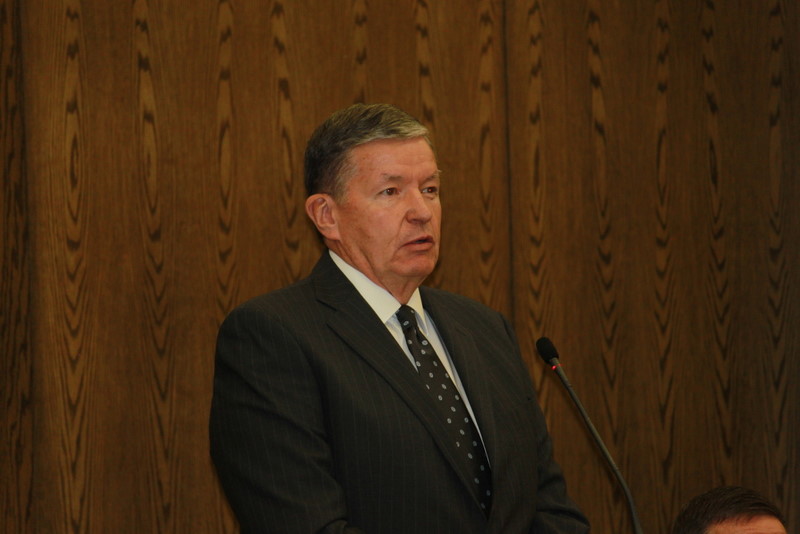
Introduction: James R. Rasband, Dean, J. Reuben Clark Law School, Brigham Young University
Welcome: Cecil O. Samuelson, President, Brigham Young University
Moderator: Robert T. Smith, Managing Director, International Center for Law and Religion Studies, J. Reuben Clark Law School, Brigham Young University
First Plenary Session – Said Aqil Siroj
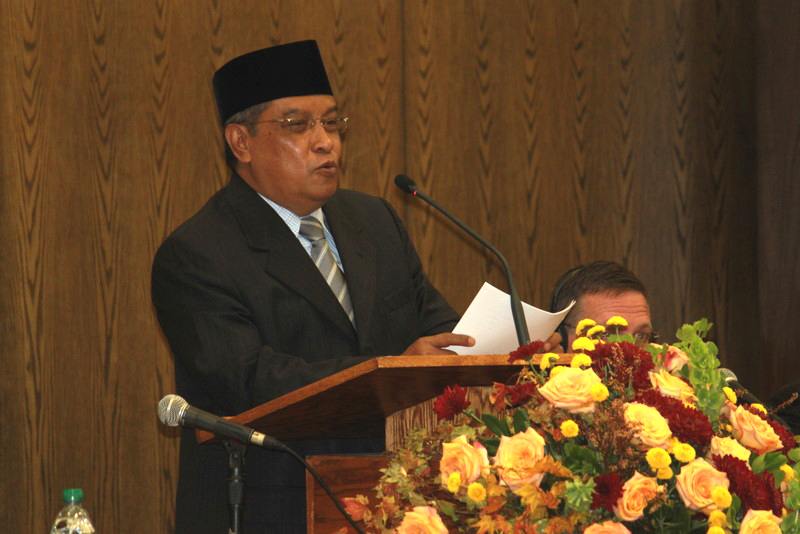
Natalie Wright Romeri-Lewis
ICLRS Research Advisor
The first speaker at the First Plenary Session was Said Aqil Siroj, General Chairman of Nahdlatul Ulama, National Board of Nahdlatul Ulama (NU), the largest Muslim organization in Indonesia, with an estimated 30 million members. Mr. Siroj began his presentation by introducing the origin of Islam. He noted Islam’s respect for Christian martyrs…
First Plenary Session – Brian Grimm
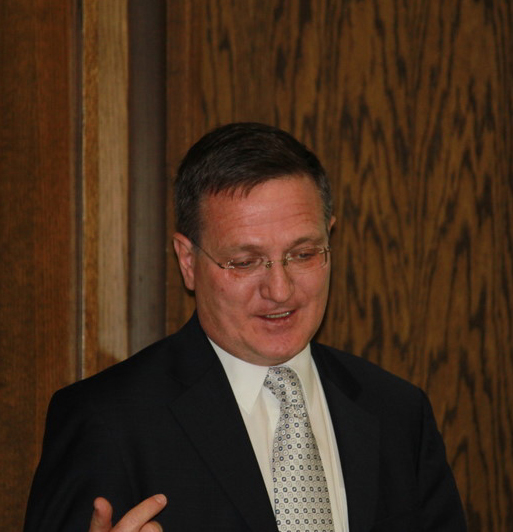
Natalie Wright Romeri-Lewis
ICLRS Research Advisor
Brian J. Grim joined us from the Pew Research Center’s Forum on Religion and Public Life where he is the Director of Cross-National Data. Although 76% of the world’s people believe it important to live in a country in which they enjoy religious freedom, only 62% believe it important that others live in a country with religious freedom. A “religious intolerance gap” results in which people are “unwilling to offer religious freedom to others.” Mr. Grim next presented many astonishing statistics derived from various human rights reports, constitutions, and other sources. Although a seemingly one-third of the world’s countries have high or very high government-imposed restrictions on religious freedom, 70% of the world’s population live under these high restrictions. Such restrictions increased in 12% of the countries and decreased in 6% during the years 2006-2009. France now bans the Burka and imposes a fine; Uzbekistan bans Christian and Muslim literature. Of note is that Christians face harassment in 130 countries, Muslims in 117 countries, members of folk religions in 84 countries, Jews in 75 countries, and Hindus in 72 countries. The harassment of Muslims in the Middle East stems mostly from majority groups harassing minority groups while Jews face mostly social hostilities, not government-imposed restrictions.
Similarly, in the US 1400 hate crimes are annually reported to the authorities. As opposed to China, with its very high government restrictions and low social hostilities, India has low government restrictions and high social hostilities. Mr. Grim’s correlations also show that religion is related to terrorism in 37% of the world’s countries. Similarly, where anti-blasphemy laws are imposed and enforced, government restrictions increase and religious-related violence results. Using statistical tests, he deduced the “Religion Violence Cycle”: social hostilities against religious freedom lead to government restrictions on religious freedom that lead to violence. In contrast, an increase in religious freedom correlates with an increase in civil liberties, gender empowerment, and political and other freedoms and a decrease in GDP spent on military affairs. Thus, even from a secular perspective, a plethora of economic benefits justify protecting religious freedom. Mr. Grim sees that the challenge for modern states is to recognize the religious dimension of society and the secularists who ignore religions (“blindness”).
First Plenary Session – Grégor Puppinck
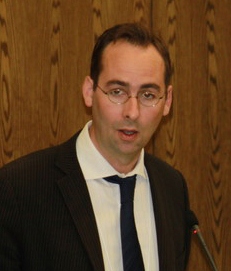
Natalie Wright Romeri-Lewis
ICLRS Research Advisor
Grégor Puppinck from France, Director of the European Center for Law and Justice, began by explaining that as the European Court of Human Rights in Strasbourg resolves cases from 47 states on a variety of legal topics, the court is faced with the question of how to respect minority beliefs in the face of pluralistic societies. Two cases served as the vehicle for his presentation. The first illustrates the point that people who claim a right based on religion should refrain from also claiming the right based on conscientiousness. In…
Indonesia – Syamsul Arifin and H. Marsudi Syuhud Sahudi
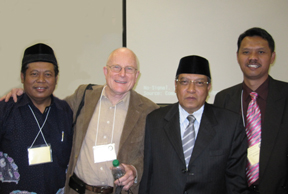
Joe Hepworth
Research Advisor
H. Marsudi Syuhud Sahudi. General Secretary Sahudi discussed living in harmony in religious diversity in Indonesia. Indonesia consists of 17,000 islands, 6,000 of which are inhabited. Of the total nearly 10 million kilometers, almost 8 is water. Less than 20% is land. Biggest Muslim population. 248 million people. Indonesia is the 4th most populous country with at least 300 ethnic groups. 737 living local languages…
Perspectives from Brazil
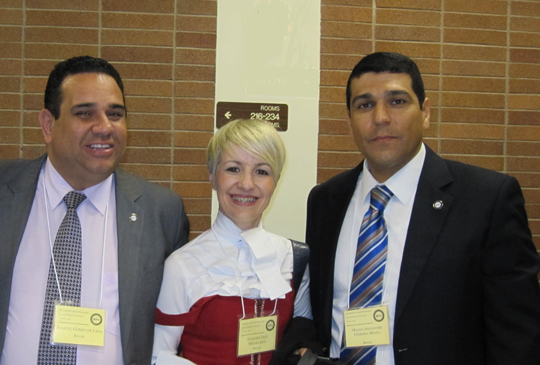
Gaylee Coverston
Research Advisor
During the breakout session discussing the issues of religious freedom in Brazil, the distinguished delegates Magno Alexandre Ferreira Moura, Damaris Dias Moura Kuo, Samuel Gomes Lima, and Moroni Morgado Mendes Costa discussed the history of Brazil’s quest for religious freedom citing constitutional changes over the years and laws currently in effect in a clear, concise, and transparent way….
Second Plenary Session: Perspectives from the Judiciary
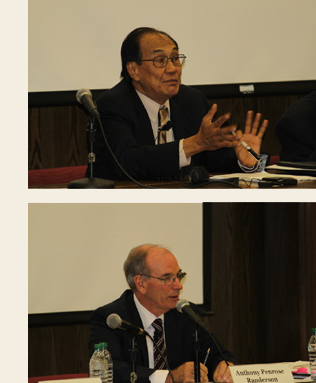
Gayla Sorenson
ICLRS Senior Fellow and Volunteer Network Coordinator
Two distinguished judges–Chief Justice Zaki Azmi (retired) of Malaysia and Justice Anthony Randerson of New Zealand–provided thought provoking insights on the role of the judiciary in pluralistic societies in a discussion moderated by Chief Judge Emeritus J. Clifford Wallace of the US 9th Circuit Court of Appeals.
Judge Azmi provided a perspective arising from his experience as a judge in a country with a recognized state religion but where a harmonious balance with minority religions is generally enjoyed. He highlighted the primary issue as arising in the family law context where marriage laws are determined by Sharia law and sometimes conflict with the claimed rights of non-Muslims. He underscored the requirement that…
Third Plenary Session: Perspectives from Political and Media Leaders
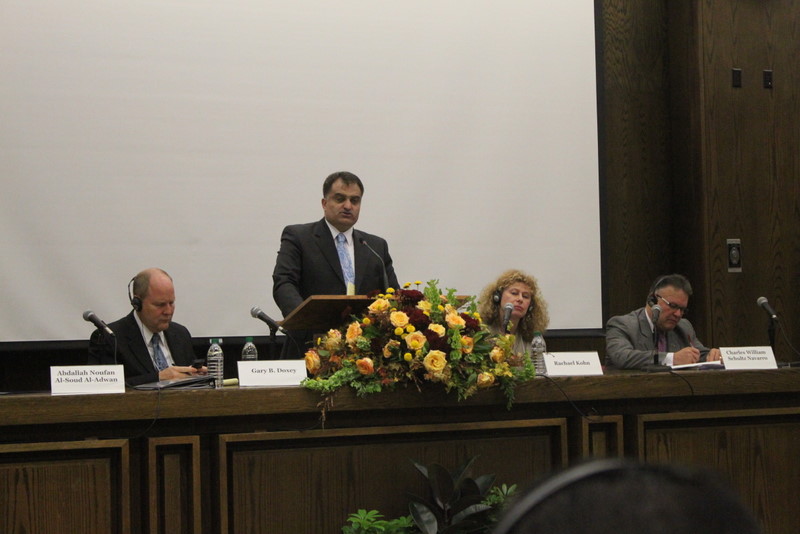
Moderator Gary B. Doxey, ICLRS Associate Director
Speakers Hernán Larraín Fernández, Senator, Chile Senate, Chile; Rachael Kohn, Producer and Presenter of The Spirit of Things and The Ark on Radio National, ABC Radio National, Australia; Abdallah Noufan Al-Soud Al-Adwan, Secretary General of the Cabinet, Prime Ministry, Jordan. Report on this sesson to follow.
Judiciary – Minister Jorge Chediak Gonzalez, Uruguay
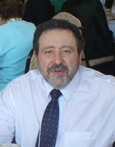
Joe Hepworth
Research Advisor
In the breakout session “Judiciary: Trends and Challenges,” Minister Jorge Chediak Gonzalez summarized the history of religious freedom in the Spanish colonies, focusing on Uruguay. In the late 19th century, Uruguay began to separate church and state. Catholic cemeteries became public, operated by the local government. In 1877, the government created a civil registry to record vital records, such as births, deaths and marriages. Before then, all registration was in the Catholic church. In 1885, civil marriage was introduced; and in 1907, divorce by mutual consent was allowed, over the objection of the Catholic church. In 1918, the Uruguay Constitution was amended…
Benin – Michel Alokpo
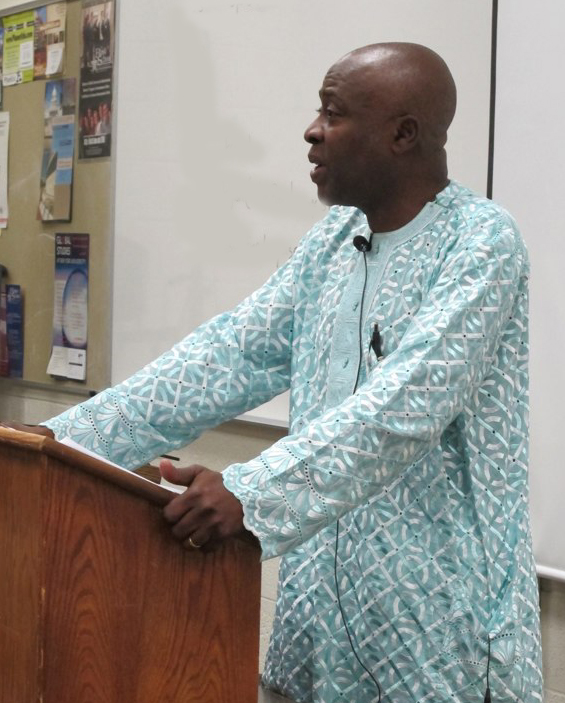
Joe Hepworth
ICLRS Research Advisor
Michel Alokpo, Benin
Minister Alokpo began his presentation by expressing his love for religion. He was born into one religion and converted to another. Benin has 8 million inhabitants. Christianity is 50%, Islam 20%, and traditional religion 28%. Aug 1, 1960 Benin won its independence from France. Benin has experienced several military coups, the most recent of which was a very dictatorial Marxist Leninist regime. Churches closed because religious authorities didn’t accept Marxism. That philosophy didn’t fit the philosophy of the country.
Foreign missionaries fled the country after the Marxist-Leninist coup. Certain pastors resisted and held…
China – Professor Yunfeng Lu, Peking University
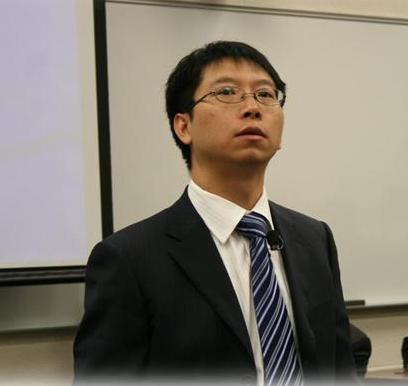
Joe Hepworth
Research Advisor
Professor Yunfeng Lu: Historically, China has had five religious traditions: Buddhism, Daoism, Confucianism, sects, and popular religion. China is a continent of spirits. Popular religion was defined as “feudal superstition,” and became a subject of repression and destruction. Traditional sects were labeled “reactionary organizations.” Confucianism was regarded as the relic of feudalism in 1950s. It was not permitted to be a kind of religion. In the 1950s, the state officially recognized five religions. The State recognized them but heavily regulated and refused to allow…
Dominican Republic – Victor Orlando Bisonó, José Rafael Vargas, Eugenio Cedeño
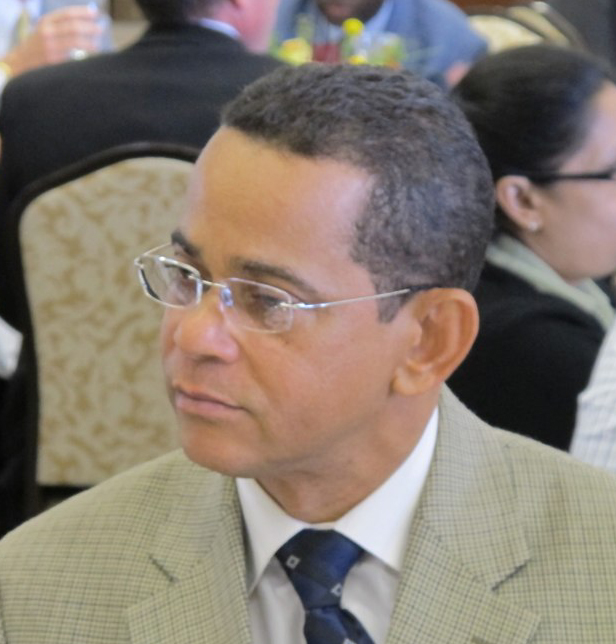
Martha Branigan Sutton
ICLRS Research Advisor
Dominican Republic delegates Victor Orlando Bisonó Haza, Deputy, National Congress; José Rafael Vargas Pantaleón, Senator; and Eugenio Cedeño Areché, Deputy, National Congress, spoke at the 18th Annual International Law and Religion symposium on October 3, 2011. They provided insights on the religious freedom portions of their new constitution which provides for protection of a person’s rights to liberty of conscience and religion. They drew attention to the country’s coat of arms which still contains a cross and Bible displaying a popular scripture reflective of the Spanish colonization and continuing presence of the Catholic Church. Despite…
Nigeria – Is-haq Oloyede
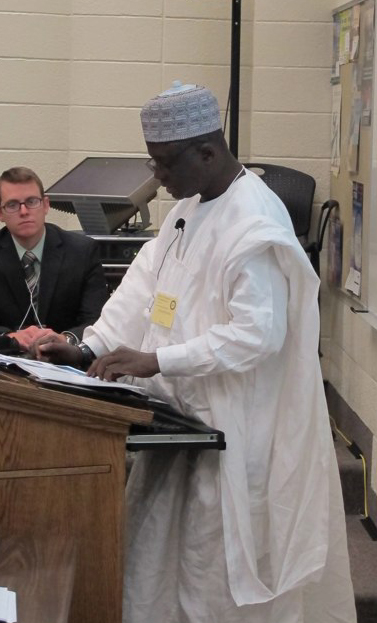
Joe Hepworth
ICLRS Research Advisor
Is-haq Oloyede presented what he described as a Nigerian Muslim perspective. Religious freedom is the absence of persecution or oppression on the basis of religion. Every religion worthy of the name will want to accommodate others in its thinking and its practice.
Mr. Oloyede described several areas of potential problems: 1. Is expressing an opinion of another’s religion insult or love? 2. Enforcing a state religion. 3. Intolerance of minority by majority. 4. In exercise of religion, some encroach on the freedom of others.
Mr. Oloyede expressed his view that religious freedom is an inalienable right of every citizen in every part of the world. He expressed that view “not just as a Nigerian, but as a Muslim.” Islam has no problem with pluralism. The Koran emphasizes freedom of religion. Islam therefore emphasizes the freedom of everyone to exercise religion of his choice, subject to…
Sierra Leone – Mariatu Bangura
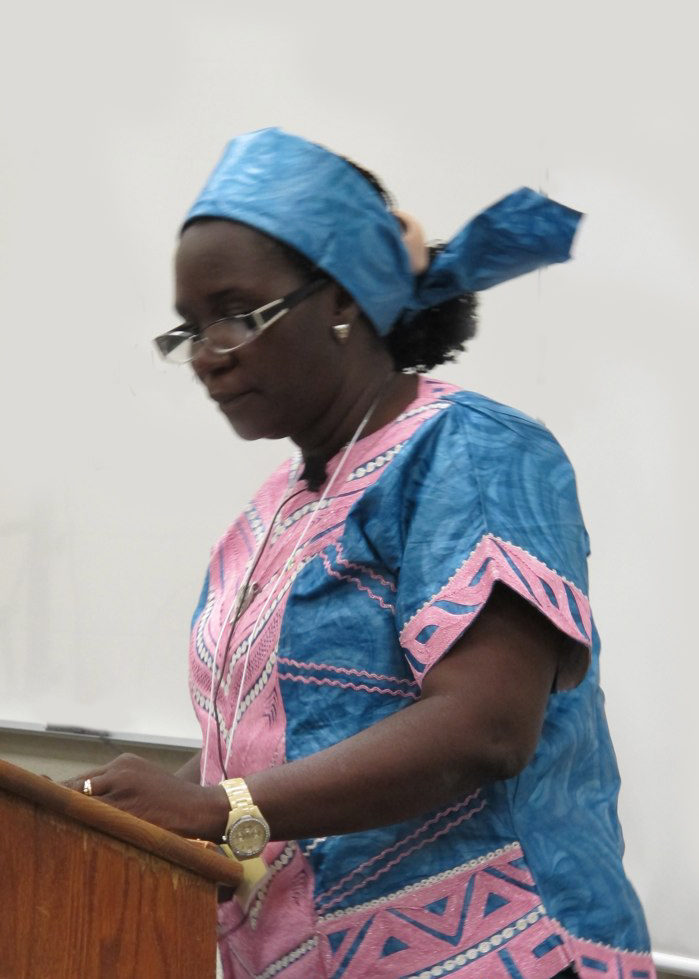
Joe Hepworth
ICLRS Research Advisor
Mariatu Bangura, Sierra Leone
Sierra Leone is a small country on the west coast of Africa. It is a democratic state based on the rule of law. Law is derived from the constitution, common law based on English system, and customary law. Presently using the 1991 Constitution.
Sierra Leone has pluralism, tolerance and religions freedom. Islam predominates, with some Christians and indigenous religion.
Sierra Leone had a war, and used religion to settle the war. Most of the Muslims are North and Christians are south. End of civil war in 2002 brought migration. The country experiences no serious religious or…
Vietnam – Nguyen Ngoc Bao and Nguyen They Hang
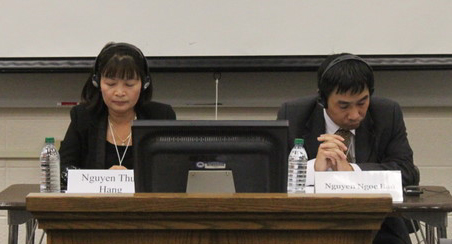
Joe Hepworth
Research Advisor
Nguyen Ngoc Bao: The Protestant religion has been in Vietnam for 100 years. Protestantism has become one of most important religions in Vietnam. Over 400 separate churches. As long as they follow the laws and regulations, they can have all freedoms in accordance…
Judiciary: Practices to Protect Religious Freedom – Mohammed Al-Nasser, Jordan
Natalie Wright Romeri-Lewis
ICLRS Research Advisor
Judge Mohammed Al-Nasser, of the Judicial Council of Jordan, clarified the several questions posed by participants regarding “honor crimes.” Judge Al-Nasser explained that Jordan utilizes civil codes and civil courts, as well as Sharia code and Sharia courts. When a husband finds his wife or relative in the act of adultery, his mental state changes to one in which he is not in control and, at times, he kills his wife or relative. The law does not consider his act murder because he had an altered mental state during the act of killing. At the same time, adultery is against Sharia law because “you sin against yourself, your family, your tribe, and your faith.” To defend the family honor, family members at times kill an adulterer. The woman who committed adultery may spend time in jail for her crime. However, she may remain in a jail-like facility for an extended period of time to protect her from her family members killing her. Unfortunately, even after remaining away, once returned, some woman are still killed.
Judge Al-Nasser also wanted to clarify that non-Muslims may change their religion without legal or penal punishment. In contrast, Muslims who change their religion violate the law. At first, people will speak with the Muslim to see why the person wants to change religions and to determine whether the decision was thought through. After allowing the person a period to reflect and re-think, the person is asked again whether s/he wants to change religions. Judge Al-Nasser said that although Sharia law proscribes the death penalty as the punishment for Muslims who leave Islam, the government does not actually use the death penalty for this crime.
Symposium 2011: Closing Session
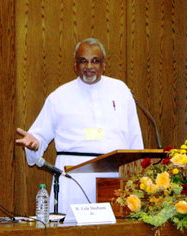
Symposium 2011 came to a close in a plenary session on Tuesday afternoon, October 4, 2011. Center Director Professor W. Cole Durham, Jr. invited seven Symposium delegates and one audience member to join him in summarizing the event for all assembled in the Law School’s Moot Court Room and listening in via live Internet stream. Joining Professor Durham during this hour were
- David Rodearmel – U.S. Foreign Services Officer, currently assigned to Stuttgart, Germany, former Symposium delegate, this year an audience member;
- Mariatu Bangura – Senior Executive, Gender and Children’s Affairs, Ministry of Social Welfare, Sierra Leone;
- Justice Anthony Penrose Randerson – 
…